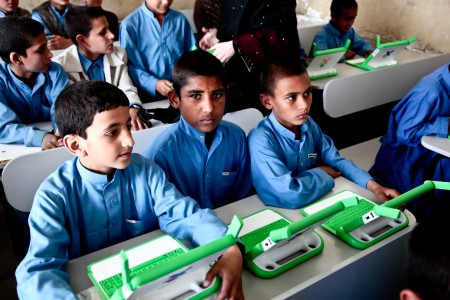OLPC Rwanda organized a capacity-building workshop for 300 teachers this week. The school-head and one lead teacher from each of 150 schools attended. The GC4LL blog has a detailed writeup. I like this quote in particular, since passing on the ideas behind our core principles takes time:
They also are going to learn about the two main points of the OLPC implementation: one laptop per each child and children take laptops home. Those two points are always controversial and it is very important that school’s principals understand the underlining logic behind them. It the school management buy the concept, the success chances of the project in the school increase significantly.
There is also a photoset from the event and a copy of their “training booklet“(PDF) online.


